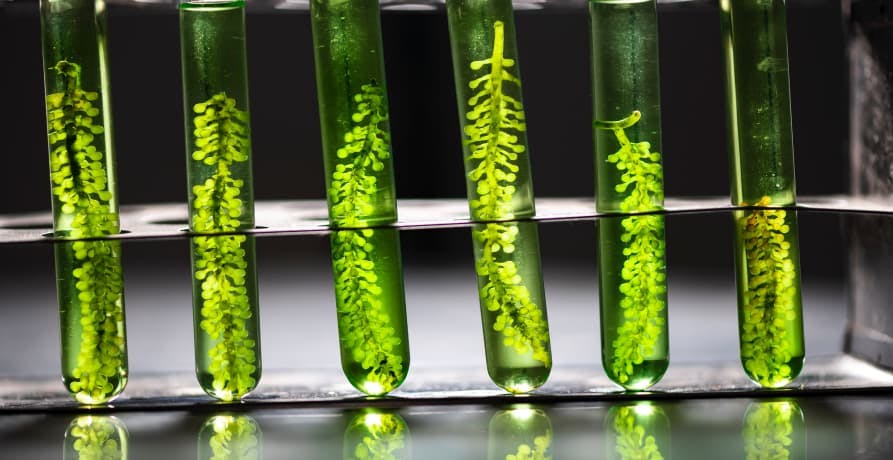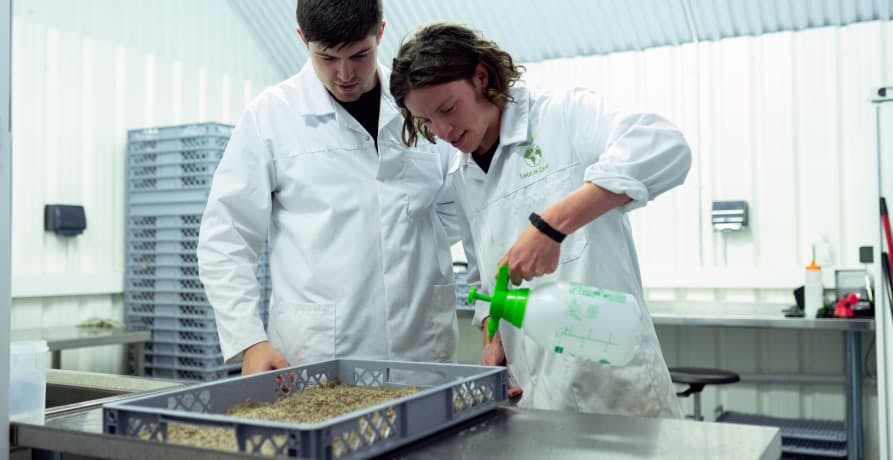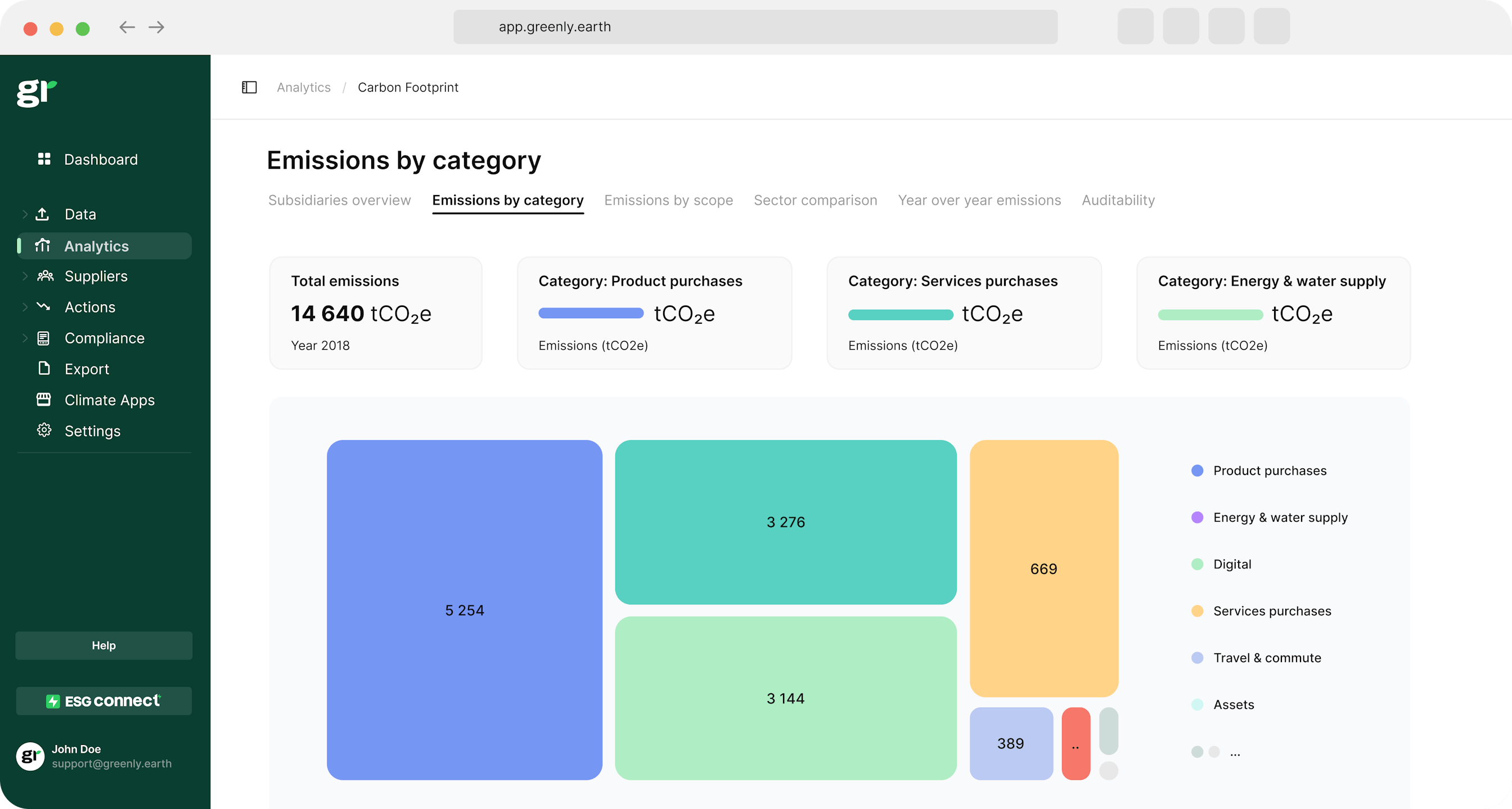
Impacts, Risks, and Opportunities (IRO) for CSRD Reporting
In this article, we’ll break down what IROs are, how to identify and assess them, and what CSRD requires in terms of disclosure.
ESG / CSR
Industries



It’s already a tough job market out there for recent Gen Z college graduates, but this generation is facing another conundrum when it comes to seeking out a career – as many are determined to make their work 9 to 5 work days into a fulfilling profession that can help to save the planet, such as by becoming an environmental scientist and obtaining an environmental science degree.
What is an environmental scientist and how can they help to improve environmental management and avoid environmental hazards?
In this article, we’ll explore what it means to be an environmental scientist, the skill sets and responsibilities expected of environmental scientists, possible career paths, and how their work impacts the world.
An environmental scientist makes use of their knowledge regarding the planet, climate, and various natural sciences to help safeguard the Earth and ensure human health and safety. Environmental scientists seek to accomplish this by fighting climate change as a whole, such as by helping to preserve vital natural resources, habitats that help to support biodiversity, and avoiding excess emissions that contribute to pollution.
Many environmental scientists work on the following environmental issues:
Examples of how an environmental scientist may achieve this include:
👉 Ultimately, an environmental scientist is expected to use their niche set of skills to assist and encourage other people who have the power to elicit change – such as lawmakers, stakeholders, and the general public.
Deciding on your major and which career path to follow is never an easy decision for any college student, but there are a few key points that might help you decide if a career in environmental science is right for you.
Becoming an environmental scientist might be the right profession for you if:
👉 If you care about the planet and want to protect its vitality for future generations to come, working to become an environmental scientist might be the right choice for you.
If you’re to choose the path towards becoming an environmental scientist, it won’t only be a self-fulfilling or beneficial job for yourself knowing that your work helps the greater good – but it will help the world fight against climate change and adapt in this crucial time.
In addition to this, becoming an environmental scientist could be good for people who want to have diverse careers: as studying environmental scientist can open the doors to a variety of careers – such as policy making, research, teaching, and more.
Other benefits to becoming an environmental scientist include:
💡 The overarching benefit to becoming an environmental scientists is helping to conduct environmental surveys, data analysis, and additional research that can help to reduce our environmental impact and pave the way for a more sustainable future moving forward.
| Role | Environmental Scientist | Environmental Engineer | Sustainability Manager |
|---|---|---|---|
| Key Responsibilities |
|
|
|
| Educational Requirements |
|
|
|
| Skills Required |
|
|
|
| Typical Employers |
|
|
|
| Impact on Environment |
|
|
|

One of the most appealing factors to becoming an environmental scientist is that there are multiple career opportunities for those who are interested in studying environmental science.
People who work as an environmental scientist have the opportunity to use their skill sets in a wide variety of jobs, from becoming a field agent out in the world, a more seclusive laboratory scientist, or working with others such as lawmakers, regulatory agencies, or contributing to corporate sustainability.
Here are some more examples of careers for those who opt to become an environmental scientist:
It’s no surprise that with climate change, many farmers are struggling on how to make ends meet when drought-like conditions continue to destroy their crops. Environmental scientists can help to conduct research to improve the planting process and ensure there are no food shortages.
Anyone can be a consultant no matter their profession – including environmental scientists. An environmental scientist can assist various clients with their expertise and help companies to ensure their business practices align with the current climate legislation. This is a great career option for those who prefer independence and the entrepreneur route.
Environmental science is becoming a more popular choice in school, making it a profession that will continue to be in demand in the coming years. This is a good fit for an environmental scientist who wants to pass their findings and wisdom onto future generations to use. However, an environmental scientist can be a teacher without working at a high school or becoming a college professor – they can also opt to be mentors for non-profit organisations or community groups.
If you’re passionate about animals, working directly with them might be the most fulfilling choice – as these environmental scientists will help develop safe habitats and lifestyles for animals of all kinds. Zoologists usually accomplish this by studying the natural habitats of animals.
Recycling is becoming an increasingly important issue as landfills continue to contribute to excess greenhouse gas emissions, and serves as yet another role that an environmental scientist can take on. Environmental scientists can become recycling offers, which will include tasks such as monitoring recycling centers, public facilities, and developing new ways to make recycling more accessible.
Considered a well-renowned climate job, environmental engineers will conduct research on how humans impact the environment and write detailed reports on how both the public and lawmakers can implement more environmentally friendly protocols to protect our planet.

Usually, in order to become an environmental scientist – a minimum of a bachelor’s degree is required, typically in environmental science. In addition to this, students in environmental science often work in volunteer or internship programs in order to learn which field they are most passionate about pursuing following their education.
However, don’t be fooled – studying to become an environmental scientist isn’t the easiest degree out there, even if some high school students might view it as the “easiest” AP science class their school has to offer. Studying to become an environmental scientist often requires the aspiring environmental scientist to study multiple scientific subjects and multivarious sciences: such as probability & statistics, physics, biology, and even chemistry.
Environmental scientists will also have to:
💡 Remember that environmental science is ultimately a multidisciplinary science – meaning more than one science is required to fully practice and understand and succeed this field.
Following an education in environmental science, those seeking to work as an environment scientists should network and apply for jobs with relevant organisations including:
Lastly, it is important to remember that becoming an environmental scientist will often require collaboration with others as one of the main goals of being an environmental scientist is to communicate to the public how to better protect our planet. Therefore, many aspiring environmental scientists would benefit from improving their interpersonal, communication, and problem solving skills – all of which might require a little extra attention to detail.

Even though more college-students are choosing to study environmental science and plan to pursue a career associated with the study, it turns out there could be some jobs that will no longer require the need of an environmental scientist.
AI, or artificial intelligence, is becoming more widespread and accessible to everyone – even for those bored on Tik Tok to make AI voice covers of songs sung by one artist into another (think Justin Bieber singing Taylor Swift’s, “Cruel Summer”).
As artificial intelligence becomes more used, industries are even looking forward to making use of it – with some sustainable supply chains looking to implement the use of AI to help monitor supply and demand, map out the most efficient shipping routes, and even route when to turn off electricity to preserve energy.
This could threaten some jobs for those seeking to become an environmental scientist. For example, an environmental consultant would prove useless in advising ways to preserve power for the sake of the environment when an AI system can do that.
However, nothing will ever replace human touch (at least not yet), and with climate change set to become an even more pressing issue in the future – there aren’t likely to be any major reasons to avoid becoming an environmental scientist, and it is bound to be a viable profession for years to come.
If reading this article about what an environmental scientist is has made you interested in reducing your carbon emissions to further fight against climate change – Greenly can help you!
An environmental scientist should have to save the planet alone, and the good news is that an environmental scientist doesn’t have to – Greenly is here to help. Click here to schedule a demo to see how Greenly can help your company to build climate resilience and remain functional during a natural disaster.
Greenly can help you make an environmental change for the better, starting with a carbon footprint assessment to know how much carbon emissions your company produces.
